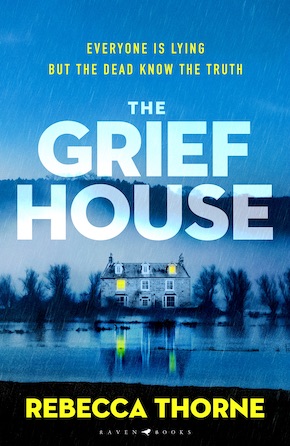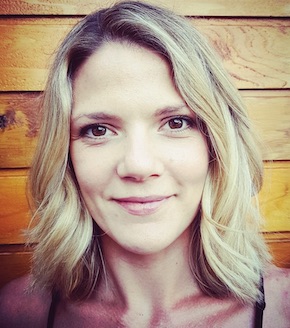The essential art of rewriting
by Rebecca Thorne
I am always nervous about giving advice to aspiring novelists. My instinct is not to advise at all but to ask them, quite earnestly, if they are sure that this is what they want to do. If the answer is “I think so…” then I am tempted to steer them towards a different course. The answer, be it right or wrong, must be “Yes.”
The mismatch between the general population’s assumptions about authors’ working lives and reality never fails to startle me; the supposed glamour, freedom, wealth and influence rarely materialise. It is a solitary, often lonely job, frequently maddening and fraught with frustration at the impossible task of turning these wild ideas into something that can be understood, as clearly as possible, by a stranger. There are moments of triumph: an almost perfect sentence, a publishing deal, a printed book. And there are days when I do not speak to anyone other than the people I have invented.
It is less a vocation and more a compulsion. I am not so much a writer as I am someone who needs to write. For all the loneliness, financial difficulty and self-doubt, there is nothing else I am prepared to do with my life. So, if you write because you must write, but need some reassurance and advice, then this, my friend, is for you.
1: Be aware of the 25k stumbling block
If new writers abandon their novel, they usually do so somewhere between 20,000 and 30,000 words. This is the 25k stumbling block. The writing we do at the start of a novel is often the writing that comes easiest; we have an idea of who are characters are and where we wish to take them; it is fun and exciting; we daydream about becoming a Sunday Times bestseller. Then we gradually lose steam. The story we had in mind seems less feasible, there are plot holes we don’t know how to fill, we know where we want to take our heroes, but we don’t quite know how, and we worry we have used all our clever ideas in the book’s first half. We may as well give up now, return to scrolling social media and spend the next thirty years boring people at dinner parties about how we once tried to write a book.
The 25k mark is the point at which writing a novel becomes a test of your own character, as well as that of your protagonist. It becomes less like a hobby and more like work. The trick to overcoming this hurdle is simple: do not give up.
Keep writing. The only way out is through. Bear in mind that whatever you write now can be improved later; the important thing is to get something down on the page. Even if it means taking your protagonist to every supermarket in London for another ten thousand words – fine. Write something down. Anything. Eventually you will see through the murk to the other side, and you can begin to reconnect the dots, to cut and shape and restructure and rewrite and rewrite and rewrite.
Remember, you can only rewrite something you have written. So don’t give up and keep writing.
Do not lose heart if, after eighteen months, you are still writing the book, and clueless family members ask repeatedly, ‘Are you still writing that book? The same book? After all this time?’”
2: Your first draft will always be rubbish, compared to your fifteenth
And I am not exaggerating. The Grief House was published on the fifteenth draft, so too some of my previous novels.
Do not be disheartened by your inability to write a first draft that is as good as the novels you have picked up in Waterstones. All those books have been through a multitude of different drafts, which will have been criticised by friends, relatives, agents, editors, copyeditors and proofreaders before being printed, bound and placed in your eager hand.
It is difficult to fully grasp your own story until the first draft is down on the page. Only then will you be able to see what does and does not work, which threads you can tighten and which subplots you can cut and save for a later book. Perhaps one character would work better, or would provide a more interesting dynamic, if their gender were different. Perhaps another needs to be older, another younger, another killed off in chapter three instead of in chapter thirteen. Maybe some elements of the story need to be shown more clearly to the reader, so they can immerse themselves in your created world. Perhaps some elements have needlessly been overwritten (do the characters really need to visit all those supermarkets in part one?) and can be trimmed, cut, killed, improved, tweaked.
It is not surprising, therefore, that my second tip is similar to my first: Don’t give up and keep rewriting.
3. Writing a novel takes time
There is no short cut. It takes time, patience, perseverance and tenacity to write a good book. If you have the patience to write a first draft, you have the patience to rewrite it another few times. All this writing does not happen in a week, or a month. It can take years, especially if you have to juggle a paid job and family commitments. Do not lose heart if, after eighteen months, you are still writing the book, and clueless family members ask repeatedly, “Are you still writing that book? The same book? After all this time?” Hold your head high and be proud that you had the guts to persevere.
Don’t give up.
4. Read widely, but don’t waste your precious time reading novels that don’t move you
Your writing will not appeal to everyone. My writing does not appeal to everyone. This is true for all writers, and all readers have their own preferences on style, content and genre. You cannot please everyone, nor will you be pleased by everyone. There is no shame in it, so don’t finish reading novels because you feel you should read them.
I have read three novels by Virginia Woolf. I wish I hadn’t. I wish I had given up on Mrs Dalloway after the third chapter and never picked up another book by Woolf again. It was an enormous waste of my time; I was bored, unmoved, uninspired and resentful of every single person who told me that I should read her, I really should, because she is famous and well regarded. I should have said, “You read her then,” and returned to reading Hemingway.
What we read influences what and how we write. If you spend time reading prose that doesn’t make you feel something, and that doesn’t inspire you to improve your own story and style, then put it down and find a novel that does move you. There is no shame in it, and there should be no room for snobbery. If the novel that inspires you most is Fifty Shades of Grey, then read that, study the writing technique and character development as you read and draw inspiration. If, however, you do genuinely love Virgina Woolf then read her and do the same. Switch genres regularly, read as much as you can from as many eras as possible and always read with a mind that is open to learning new techniques. But if a book isn’t doing for you – put it down and chose another.
I could very well have summarised this article into two clear points, but I’ve always been a novelist more than a short story writer. So, for those of you who do like it short and snappy, here you go:
1. Don’t be afraid to give up reading novels you don’t enjoy
2. Never give up writing
—

Rebecca Thorne studied English Literature at university, and now works as a reader for Faber Academy. She lives in the West Country and divides her time between the Mendip Hills and Bristol. She is the author of two previous bestselling novels under the name Rebecca Tinnelly: Never Go There and Don’t Say a Word. The Grief House is published by Raven Books in hardback, eBook and audio download.
Read more
@RThorneBooks
@BloomsburyRaven

